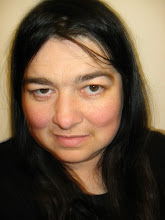There is a huge misconception that one author's success somehow damages another's potential. In my opinion, nothing could be further from the truth and all it takes is a simple exercise in maths to bash this myth to smithereens.
After a bit of prowling around on google, I came up with the following output averages for a few better known writers: Isaac Asimov wrote 1700 words per day on average. Hemingway wrote 500 a day. Stephen King writes 10 pages a day. It took J K Rowling five years to complete the first Harry Potter book. Amanda Hocking writes between 5000 to 8000 words per day. Terry Pratchett wrote Dodger in 9 months. Lee Child works at a rate of between 600 and 2500, stating that the most he ever did in a single day was 4000. In fact, the fastest writer I've ever heard of, was Michael Moorcock, who allegedly finished off a trilogy in nine days, working at a rate of 15,000 words a day.
Now let's look at the consumption rate of readers, particularly those who would class themselves as word addicts. I can shed a little light on their habits, having been one myself for many years. A serious reader used to be someone who chose a handbag, based on whether you could fit at least one or possibly more books inside. A serious reader's absolute worst nightmare is being stuck on a two hour train journey without something to read, because they have become addicted to taking mini holidays from the physical reality, whenever they can get away with it. I'm fairly slow, though. Here are a few claims from readers, also taken off the internet. One person states that she read the whole Twilight series in half a week. Another person claims to read a 600 word book in 3-4 hours. Yet another reader claims to have read the last four Harry Potter books in a few hours, on the day they came out. A somewhat slower reader claims to read 2-3 books or around 400 pages in a week.
My point, as is often stated in independent writer circles, is that no single author, even an inhumanly prolific one, can write fast enough to satisfy the appetite of one serious reader. This is why we need each other. We all grow in the same forest. We are all part of the same eco-system. If one writer encourages more people to read, we ALL benefit. Writers are not in competition with each other.
Even if the so-called Big Five publishers are restricting their output to the surest bets, there are so many other paths to follow. It has been argued, that small presses in fact have more to offer, as far as individual development of writers. And, every day more and more established writers are beginning to dabble in self-publishing, raising its profile and respectability. Towards the end of last year, Amazon announced that over 150 of their KDP authors sold more than 100,000 copies.
So, keep reading. Keep writing. And stay inspired.
(Link to my smashwords page)
